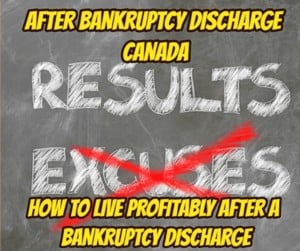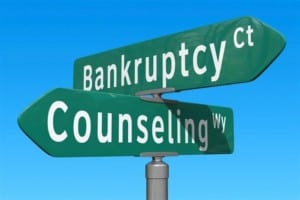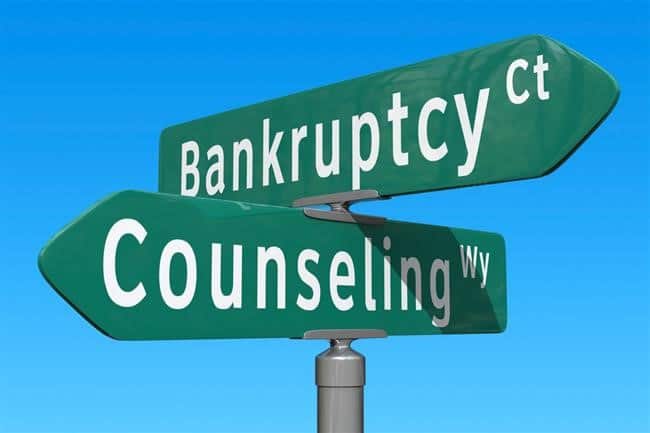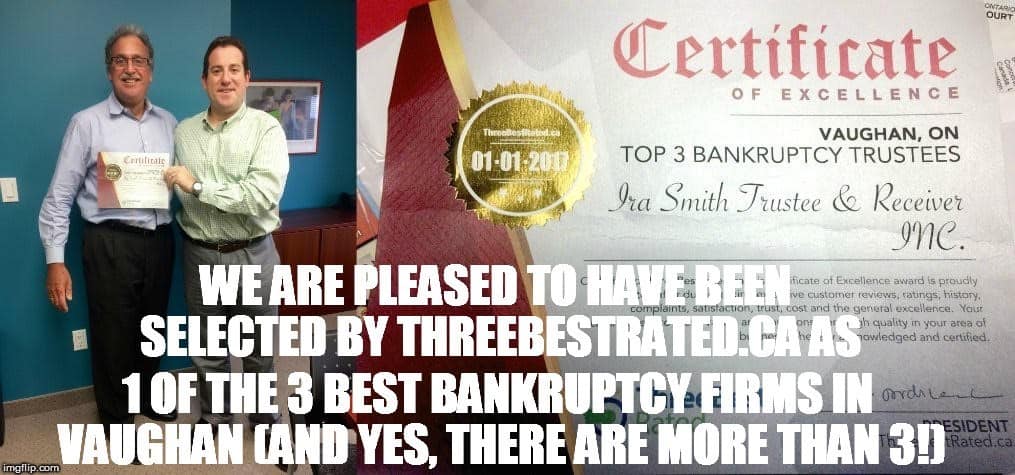Bankruptcy discharge introduction
A bankruptcy discharge is when the bankrupt is released under Canadian bankruptcy law from his or her debts as part of the bankruptcy process. Some people think that it is the act of filing bankruptcy that releases the bankrupt from liability. This is not the case. It is the discharge from bankruptcy process that “discharges” the bankrupt’s debts.
We explain in this vlog the procedure when a bankrupt’s outright discharge is opposed. We discuss the top 8 things that the Bankruptcy Court will consider in determining just what outcome the bankrupt could expect.
The primary benefit of the bankruptcy process for the insolvent person
The bankruptcy discharge is among the primary benefits of relief under the Bankruptcy and Insolvency Act (Canada) (BIA). The discharge is vital to the bankruptcy process. Debtors, after bankruptcy, can wipe the slate clean and start over, which is a central principle under the BIA statute.
Not all debts may be released
A bankruptcy discharge offers the discharge of many unsecured debts. Credit card debts, personal income tax debt, unsecured personal loans and under certain conditions, some student loan debt are all dischargeable debts. Financial debts, which will not be discharged include:
- support payments to a previous spouse or to children;
- fines or financial charges imposed by the Court;
- debts emerging from fraudulent behaviour;
- student loans if fewer than seven years have passed considering that the bankrupt quit being a full or part-time student.

bankruptcy discharge
It can be opposed
An insolvent’s bankruptcy discharge application may be opposed by one or more unsecured creditors or the Licensed Insolvency Trustee (formerly called a bankruptcy trustee) (LIT). A creditor opposition is created when the creditor files the required notice of opposition, setting out the reasons for opposing.
This happens if the insolvent has not met all of his/her responsibilities under the BIA. Making full disclosure, attending the required two financial counselling sessions and making all necessary surplus income payments are all duties of the bankrupt that must be fulfilled if a discharge is to be considered.
It can also happen if the individual bankrupt has actually committed a bankruptcy offence. Those are acts listed in section 173 (1) of the BIA. In this case, there needs to be a bankruptcy discharge hearing in Court and the Court will after that evaluate the LIT or creditor opposition as well as give its decision on the discharge from personal bankruptcy.
There are four types of discharges possible
There are 4 types of discharges:
- Absolute discharge— The bankrupt is launched from the legal obligation to pay off financial obligations that existed on the day of bankruptcy, except for certain types of debt identified above.
- Conditional discharge— The bankrupt must fulfill certain conditions, additional payments into the bankruptcy estate, to get an absolute discharge. Once all conditions have been fulfilled, an absolute discharge will certainly be granted.
- Suspended discharge— An absolute discharge that will be granted at later on a specific date determined by the Court.
- Refused discharge— The Court has the right to decline a discharge.
If there is no opposition to the discharge from bankruptcy of the bankrupt by a creditor or the LIT, then the LIT is able to provide an automatic discharge by issuing the appropriate certificate. There is no need for attendance in Court.

The opposition process
When a debtor’s bankruptcy discharge application is opposed by either an unsecured creditor or the LIT, the Trustee needs to secure a Court day. This will be for a Court hearing on the insolvent’s application for discharge. The LIT must then tell all creditors who have filed a proof of claim of the opposition. Details are also provided about the date, time as well as place of the Court hearing.
The Trustee needs to also file a report with the Court on the conduct of the bankrupt both prior to as well as after applying for bankruptcy. The report will as well give a summary of the financial results of the bankruptcy administration. If a creditor has opposed the bankrupt’s discharge, then that creditor likewise needed to send a notice of opposition.
Does the bankrupt need a lawyer on an opposed discharge?
When going to Court for his/her discharge application hearing, a bankrupt would be well advised to come with a skilled bankruptcy lawyer to represent his or her interests. Sometimes the discharge hearing is less formal than various other types of Court hearings.
However, the Court follows all the proper regulations of civil procedure. It is sometimes tough for nonprofessionals to put their best foot forward without an attorney’s aid.
There have been many Court cases on applications for discharge. A Court decision released recently from the Queen’s Bench of Saskatchewan supplies an exceptional walk-through of the points the Court will take into consideration. For those interested, the reference is Hertz Bankruptcy (Re), 2017 SKQB 224 (CanLII).

The top 8 things the Bankruptcy Court will consider
The concerns the Court thought about, in determining what type of bankruptcy discharge certificate to issue, which is the same in all bankruptcy discharge hearings, were:
- Do the conditions of the bankruptcy filing and the bankrupt’s conduct sustain an order discharging the Bankrupt’s unsecured debts?
- The Court’s problem is to make sure that within a choice the policy purposes of the BIA are fulfilled. The bankruptcy, including the insolvent’s discharge, should act as a deterrence for the person not to duplicate the very same behaviour.
- If the circumstances of the bankruptcy support an order discharging the bankrupt, what terms of discharge are proper under the distinct circumstances of the bankruptcy?
- What were the conditions of the insolvent when the debts were sustained?
- What efforts did the insolvent make to pay the creditors?
- Did the bankrupt pay in respect of certain other debts but not all of them and particularly not the debt of the opposing creditor?
- Exactly what are the insolvent’s monetary opportunities for the future?
- Is there any other conduct or reality that needs to be factored into with the regard to discharge?
The Court will take lots of variables into account. The conduct, previous income, education and age of the bankrupt are all important factors. The Court will certainly likewise trust the Trustee’s report to Court on the bankrupt’s application for discharge. The Trustee’s report assists in determining facts about the conduct of the insolvent and his or her future prospects.

Is the bankrupt young or old?
Prevention is always a consideration. It is however very important to remember that Courts tend to be extra conventional when dealing with older bankrupts. A more youthful bankrupt with years of income-making opportunities could be needed to make an extra significant repayment. Less respect is given to the instant ability to pay.
An older bankrupt with some surplus income but fewer working years might be needed to pay less surplus income obligations into the bankruptcy estate.
Bankruptcy discharge: Is my bankruptcy case over when I get a discharge?
You should by this point in my Brandon Blog realize that when you receive an absolute discharge from your bankruptcy, at that point, you are discharged from your unsecured debts.
A discharge shows that you have finished with your bankruptcy legal process and your personal liability for unsecured debts has ceased. It’s not a separate thing from bankruptcy; it happens either automatically or by an Order of the Court, as I have described above.
At that point, the LIT still has some duties to fulfill. They include:
- if there is going to be a dividend paid to the creditors, making sure that all proofs of claim have been reviewed and allowed for dividend purposes;
- resolve any uncertainties the LIT may have concerning certain filed bankruptcy claims, including the issuance of Notices of Disallowance if any;
- preparing the bankruptcy administration Final Statement of Receipts and Disbursements;
- getting approval from the Office of the Superintendent of Bankruptcy to the Final Statement
- getting the Final Statement, including the LIT’s fee and disbursements, approved by the Court;
- issuing the dividend bankruptcy payments, if any
- getting the discharge of the LIT
It is then that your bankruptcy case is closed.
Bankruptcy discharge: Do you have too much debt and want to avoid bankruptcy?
Do you have too many debt obligations and debt payments and have no idea how to deal with them? Act before you find yourself in the throes of an emergency financial situation. Ira Smith Trustee & Receiver Inc. has assisted many Canadian businesses and people throughout the Greater Toronto Area (GTA) in dealing with debts that need a plan for Starting Over, Starting Now. Don’t postpone. Give us a call today. Financial problems can be solved while avoiding bankruptcy with timely activity as well as our excellent strategy tailored just for you.




 Financial literacy for kids: Introduction
Financial literacy for kids: Introduction

 Toronto Credit Counseling: Introduction
Toronto Credit Counseling: Introduction

 Financial abuse statistics: Introduction
Financial abuse statistics: Introduction

 Comfortable retirement living: Introduction
Comfortable retirement living: Introduction